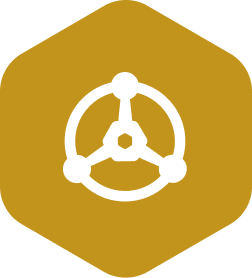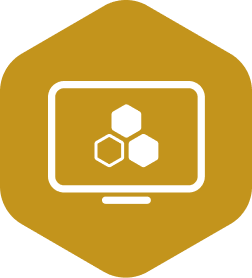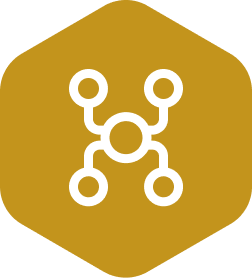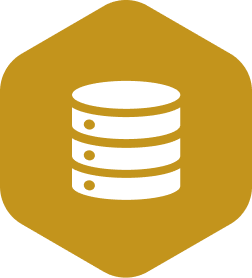Have you ever heard about “cloud service offerings”? it is a hot keyword which has over 93 billion searches in Google. Nowadays, with the increased popularity of cloud computing and services, there are 3 types of cloud computing:
- IaaS: reaches 67.7% respectively in 2021
- PaaS: reaches 5% that is the highest growth in 2021
- SaaS: remains the largest market segment and is forecast to reach $122.6 billion in 2021
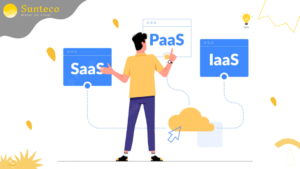
What are the concepts and differences between cloud computing?
According to the forecast of Gartner, the growth of computing clouds will continue increase quickly in 2022 and more. Therefore, the article will show the directly the understanding and comparing the three most popular cloud computing service models.
1. What is IaaS?
IaaS is Infrastructure as a Service, means on-demands access to cloud host physical and VMs (Virtual Machines) including networking, storage, servers, and virtualization.
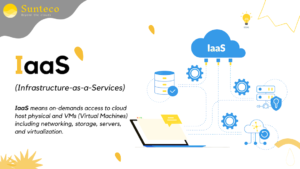
IaaS is Infrastructure as a Service
1.1 Cons
- Full-Control: Control and manage the entire infrastructure completely
- Low Latency: IaaS customers can locate apps and services closer to users to minimize latency and maximize performance
- Instant Fixes: Less downtime, instant maintenance, and recovery from outages
- Flexibility: resources can be purchased as-needed
1.2 Pros
- Security: it will be the new threats when moving from on -prem to the clouds (from the host or other VMs). Therefore, business has to prepare reviewing and researching up-to-date security threats.
- Training: When updating new system which is not familiar with its intricacies, business has to prepare a training plan and resources for ensure that users can know what they are doing
1.3 IaaS Best Examples
- Amazon Web Services (AWS)
- VMware
- Rackspace
- Microsoft Azure
- Google Compute Engine (GCE)
1.4 IaaS Use-Case
- Disaster recovery
- Ecommerce
- Internet of Things (IoT), event processing, artificial intelligence (AI)
- Startups
- Software development
2. What is PaaS?
PaaS is Platform as a Service, means popular cloud service model that provides a platform for software creation. Specifically, PaaS s delivered via the web, giving developers the freedom to concentrate on building the software including programming languages, libraries, services, operating systems, software updates, storage, or infrastructure.
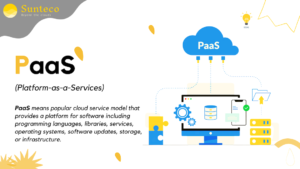
PaaS is Platform as a Service
2.1 Cons
- Saving time: provides the platform for developers to create unique, customizable software, thus, saving them time and money on writing extensive code.
- Scalability: If the app grows in adoption and usage, PaaS platforms offer great flexibility and scalability
- Saving cost: Simple, cost-effective development and deployment of apps
2.2 Pros
- Data security: the data is stored by PaaS supplier; therefore, security options may also be limited
- Limit term of services: business can’t extensively customize how the platform works on business end.
2.3 PaaS Best Examples
- Google App Engine (GAE)
- AWS Elastic Beanstalk
- Window Azure such as EC2, RDS, S3
- Heroku
- Suncloud such as Sun Highway, Sun Spinner
2.4 PaaS Use-Case
- API development and management
- Internet of Things (IoT)
- Agile development and DevOps
- Cloud-native development and hybrid cloud strategy
3. What is SaaS?
SaaS is Service as a Service, means a complete software solution that users purchase on a pay-as-you-go basis from cloud computing providers via the Internet including security, availability, and performance.
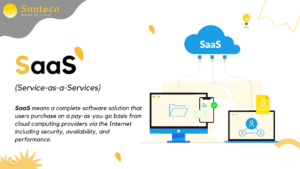
SaaS is Service as a Service
3.1 Cons
- Easy to use: users just starting to use by logging in online via website or application without need for locally hosting the software on on-premises servers
- Convenient: t’s extremely easy to find and purchase a SaaS product
- Flexible: business doesn’t need to download or installed; it is helpful for distributed global teams who don’t work in close proximity
3.2 Pros
- Lack of integration support: SaaS tools may be incompatible with other tools and hardware that are already in use at your business.
- Data security: Data security is in danger as all the sensitive information is saved within web apps
3.3 SaaS Best Example
- Google Workspace
- Dropbox
- AWS Elastic Beanstalk
- OpenShift
3.4 SaaS Use-Case
- Any individual or organization or industry productivity application is available as SaaS. If an end user or organization can find a SaaS solution with the required functionality, in most cases it will provide a significantly simpler, more scalable and more cost-effective alternative to on-premises software.
4. The key differences between three cloud computing
Every type of cloud computing are differences features and functionalities; and have pros and cons, each type will fit for each demand and scale of business. Understanding the structure of each one will help you determine the right approach for your business.
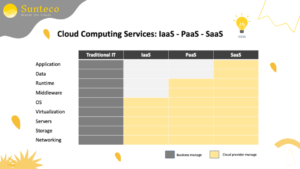
The differences between Tradtional IT, IaaS, PaaS, and SaaS
5. Summary
Firstly, we get the concept of those cloud computing. After that, the major difference between SaaS vs PaaS vs IaaS examples are the way of data management and maintenance.
- SaaS: No need for software or hardware, users do not have to worry about data management or maintenance.
- IaaS: The user needs to manage all the resources to develop, host, build and run cloud services.
- PaaS: The user is allowed to manage the environment offered to build and deploy the applications, but not the server.
Finally, depending on the demand and scale, business can select the most appropriate services as per the capacity and requirements of your business.
At Suncloud, we operate based on rich and scalable PaaS environment which variety of products and solutions which are fit for every type of business from star-up to enterprises.
>> Learn more about Suncloud
>> Learn more about Sun Highway Messaging
>> Trial free Suncloud products and gets $200 when creating new account

